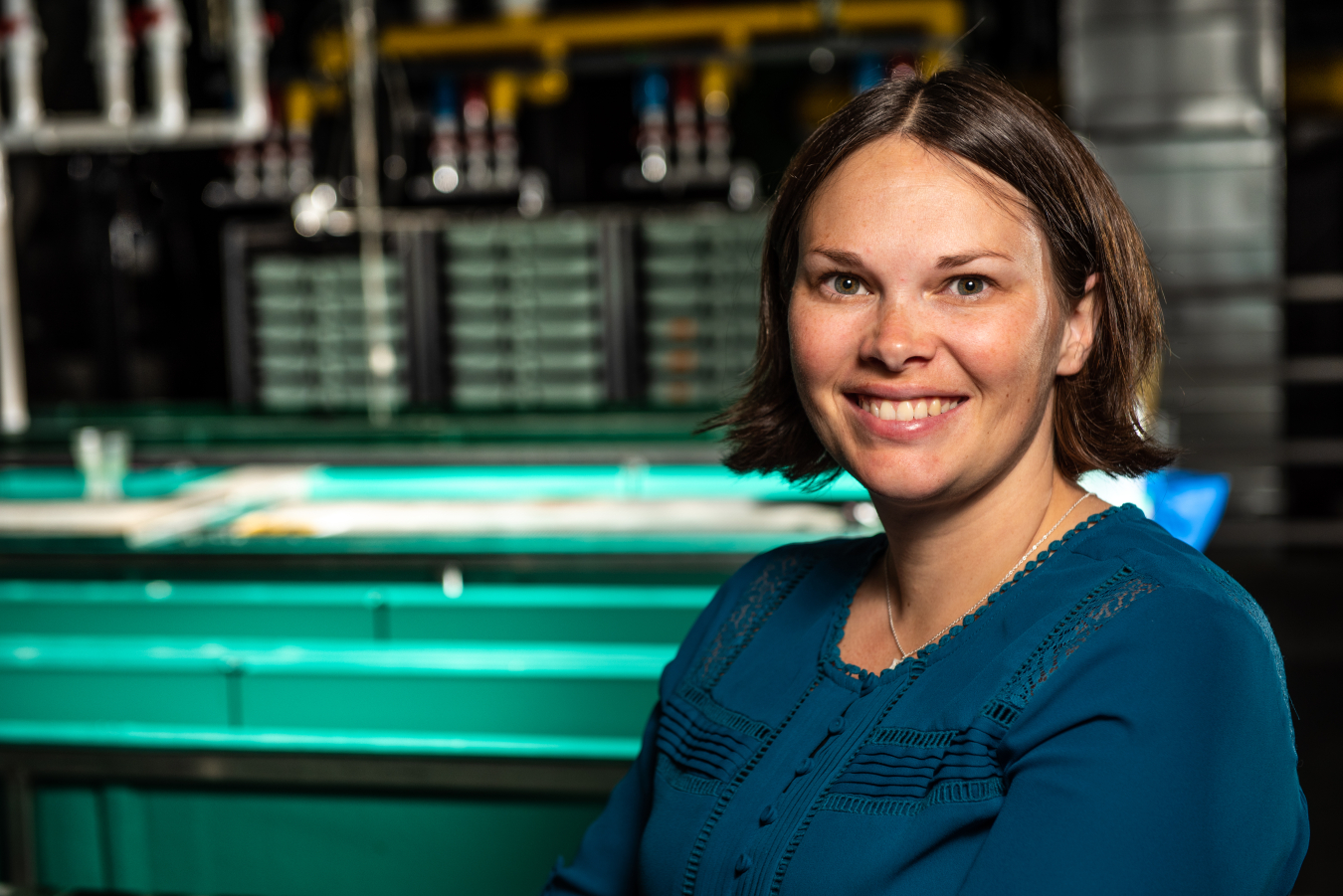Learn why Alison Colotelo loves her job as a Project Manager in the Ecology Group at Pacific Northwest National Laboratory.
August 14, 2019
Alison Colotelo is a Project Manager in the Ecology Group at Pacific Northwest National Laboratory. Alison's work involves building and working with multi-disciplinary teams that tackle a diverse set of problems, including the effects of hydropower development on fish. In addition to her technical work, Alison enjoys sharing her passion for science with the community through visits to local schools and participation in other outreach activities. She holds a master’s degree in biology from Carleton University and a bachelor’s degree in forensic science from Laurentian University.
What inspired you to work in STEM?
I’ve always been interested in the application of science to solve problems. In high school and into my undergraduate studies, I was fascinated with forensic science and how we use basic understandings of biology, chemistry, and physics to understand what happened at crime scenes. As I progressed through my formal education, I was exposed to other types of applied research and really found a passion in understanding how humans impact fish populations, leading me to my current research.
What excites you about your work at the Energy Department?
Effectively communicating the importance and relevance of our science to make it accessible and supported by industry is such an enjoyable part of my research. My work at the Energy Department has real world implications. It is so satisfying to see the results of my research impact the hydropower community, from evaluating new technologies that can be used to improve survival of fish passing through dams to developing tools and technologies that can be used to quantify and improve the biological performance of hydropower turbines.
How can our country engage more women, girls, and other underrepresented groups in STEM?
The STEM field is made up of a diverse set of individuals, with expertise in many areas including technical specialties, communications, and supporting trades. In order to engage more women, girls and other underrepresented groups in STEM we need to highlight the diversity. Inspiration to pursue a career in STEM comes in part from viewing yourself in the field through role models that you can relate to.
Do you have tips you'd recommend for someone looking to enter your field of work?
The best way to find opportunities in a field is to build relationships with those currently in the field. Most scientists enjoy talking about what they do and understand the importance of finding the next generation to continue the research. I would recommend looking for and taking advantage of opportunities to build your network. Internships are great way to do this, and many conferences often facilitate networking experiences for early career and more established researchers.
When you have free time, what are your hobbies?
My free time is largely spent with my husband and 2-year old son. Our days are filled with playing at the park, singing and dancing, and exploring new places. I also enjoy talking about my science, particularly with local schools and the broader community.
Learn more about our programs & resources for women and girls in STEM at http://www.energy.gov/women

